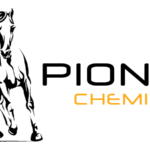In today’s fast-paced corporate environment, continuous employee training is an essential part of business growth. However, managing the cost of training programs can be a challenge. This is where partnering with a custom LMS development company offers a strategic advantage. Custom Learning Management Systems (LMS) are designed specifically to meet organizational needs, enabling businesses to effectively reduce long-term training expenses while improving learner engagement.
This article explores how custom LMS development delivers cost savings over time by providing flexibility, scalability, and personalized learning experiences that off-the-shelf solutions often miss.
What is Custom LMS Development?
Custom LMS development is the process of building a tailor-made learning platform that fits an organization’s unique training requirements. Unlike generic LMS software, a custom LMS software development company creates specific functionalities, designs, and integrations to best serve the company’s employees and compliance needs.
Similar to custom manufacturing companies, which craft products precisely to client specifications instead of off-the-shelf goods, custom LMS creation is all about personalized development that aligns with an organization’s goals and processes.
How Custom LMS Helps Cut Training Costs
1. Avoids Recurring Licensing Fees
Generic LMS platforms often come with monthly or annual license fees that grow with your user base. Custom LMSs eliminate these recurring costs since businesses own their platforms outright. After the initial LMS development cost, ongoing expenses are limited to maintenance and updates.
2. Reduces Content Maintenance and Update Costs
With custom development, companies can update content and workflows internally without vendor intervention or expensive third-party tools. This flexibility minimizes redesign or retraining expenses over time.
3. Improves Training Efficiency Through Personalization
A key benefit of custom LMS development is the ability to create personalized learning paths tailored to individual roles or skills. Personalized pathways reduce unnecessary training time, allowing employees to focus on relevant skills, increasing productivity, and lowering opportunity costs.
The Role of Developer Expertise and Location
When building a custom LMS, your partner’s expertise and geographic location can influence both quality and cost:
-
LMS Development Companies in Pakistan often offer high technical skills and cost-effective development, helping reduce initial expenditures without compromising quality.
-
Custom LMS Development Companies in the USAÂ provide proximity advantages and deeper market understanding but at higher development salaries and costs.
Balancing budget and quality through hybrid teams is also a common approach.
Key Elements in the LMS Development Process Influencing Cost Savings
Understanding the LMS development process reveals where efficiencies can lead to long-term savings:
-
Needs Analysis:Â Tailoring features reduces unnecessary functions that inflate costs.
-
User-Centric Design:Â Simplified UI decreases training support needs and increases self-learning adoption.
-
Automation:Â Integrating automated workflows reduces administrative costs.
-
Scalability:Â Building with future growth in mind prevents costly overhauls.
Industry Insights: LMS Developer Roles and Salaries
The increasing demand for custom LMS drives growth in LMS developer jobs globally. Salaries vary widely:
| Region | Average LMS Developer Salary |
|---|---|
| USA | $80,000 to $120,000 |
| Pakistan | $15,000 to $30,000 |
Partnering with skilled developers, regardless of location, greatly influences the success and cost-effectiveness of your LMS project.
Case Study: Return on Investment With Custom LMS
Companies adopting custom LMS solutions report:
-
Up to 40% reduction in time spent on administrative training tasks.
-
35% higher course completion rates due to personalized learning.
-
Significant long-term savings compared to repeated licensing and support costs with commercial LMS platforms.
FAQs
What Does Custom Development Mean in LMS Context?
Custom development means building a learning system specifically for your company’s needs, similar to how custom manufacturing companies produce unique products rather than standard ones.
How Does Location Affect LMS Development Cost?
Development cost varies with developer salaries. For example, LMS development cost in Pakistan is typically lower due to regional differences in wages.
How Long Does the LMS Development Process Take?
The average LMS development process spans 3 to 6 months, depending on features and complexity.
Conclusion
Choosing a custom LMS development company can significantly reduce your organization’s long-term training costs. Customized platforms eliminate licensing fees, streamline content management, and improve training effectiveness, providing an undeniable edge over off-the-shelf solutions.


